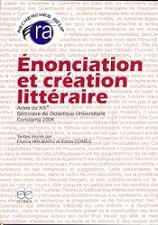Quand et pourquoi parle-t-on de discours sans destinataire ?
When and Why Do We Speak of a Discourse without an Addressee?
Author(s): Philippe GillesSubject(s): Poetry
Published by: Editura Echinox
Summary/Abstract: Contemporary reflection on the possibility of discourse without a communicational framework has been massively concentrated on the question of texts without speakers and has strangely neglected the complementary pragmatic paradox, the hypothesis of texts without addressees. We will not be examining here whether such texts exist, but try more modestly, on the one hand, to take into consideration the historically attested reflections with respect to a given enouncement or type of enouncement considered to be “addresseeless” and, on the other hand, to question what this enouncement or type of enouncement could legitimate such a judgment and the intuition that gave rise to it. As it seems, two discursive configurations have frequently led speakers to ask the question as to whether or not the enouncements are addressed to someone: notes taken for a rough-draft and interior monologue. The problem that arises then is that of knowing under what conditions an enouncement seem to invalidate the intuitive evidence according to which it must necessarily be addressed to an addressee.
Journal: Recherches ACLIF: Actes du Séminaire de Didactique Universitaire
- Issue Year: 2007
- Issue No: 04
- Page Range: 9-18
- Page Count: 10
- Language: French

